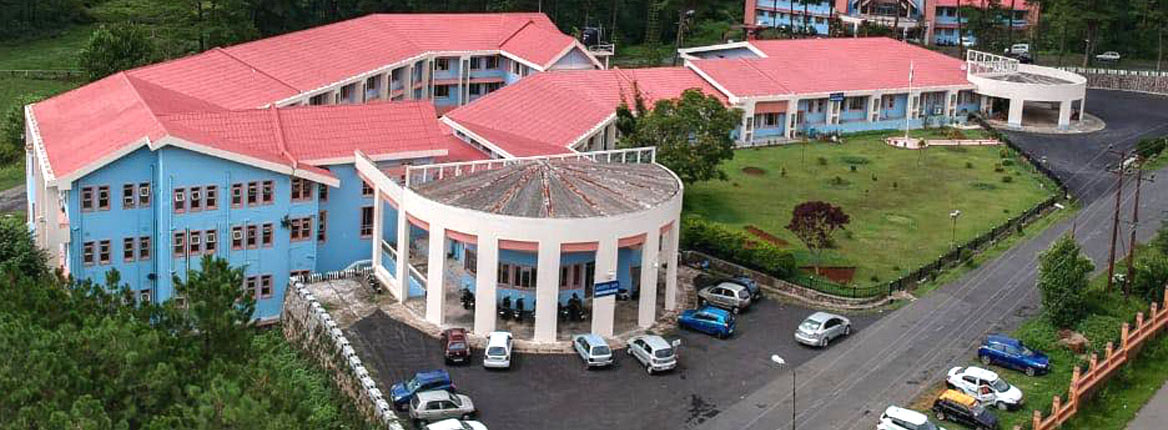North Eastern Hill University (NEHU) has established itself as an institution of higher learning and research of very high quality under the Act (24 of 1973) passed by both Houses of Parliament and received the assent of the President of India on May 26th, 1973.As Northeastern region’s one of the oldest and most vulnerable institution of higher learning, NEHU’s mission is to disseminate and advance knowledge by providing instructional and research facilities in such branches of learning as it may deem fit.
At present there are fifty-three undergraduate colleges affiliated to the University including eight professional colleges. The University Central Library whose membership includes university and college teachers, postgraduate and undergraduate honoured students and members of the non- teaching staff has a collection of close to 2,00,000 books, 38,000 bound periodicals and it subscribes to 316 foreign and 366 Indian current journals.
Our students have done well in life after leaving the University. Many have been taken into the Central Civil Services, Banking Services and into the University System. Several have been awarded scholarships and fellowships by both national and foreign organisations. The percentage of our students clearing the NET, GATE and other national tests is quite high. The number of students turning for their Master's degrees and research students working for their M.Phil. and Ph.D. degrees is close to 1700. The undergraduate colleges affiliated to the University enrol about 18,000 students. Our faculty strength is just over 300.
In a short span of about 50 years NEHU has matured into an institution with a serious academic and social and cultural agenda and a clear vision for its future growth.
The Department of Biomedical Engineering (BME) was established in the year 2012, under the School of Technology, NEHU, Shillong funded by MHRD, Government of India, with the specific purpose to promote studies in new emerging areas of medical sciences employing advancements in technology for the benefit of masses. The Department of the University intends to provide education to young minds for the achievement of better health care solutions with emphasis on learning new techniques, develop innovative ideas through learning, skill development, Research and Development (R&D) and Industry-Institution interaction in the field. The Department aims to focus on strengthening R&D activities to develop products and services that can be transferred to society for the benefit of humankind.
The Department is one of the few institutes in the North-Eastern region offering U.G. and Ph.D. programs in Biomedical Engineering. The Department aims to focus on strengthening R&D activities to develop products and services that can be transferred to society for the benefit of humankind. The students are being prepared to face the emerging challenges in Biomedical Engineering by faculty members having rich expertise, diversity, and experience in this field. The core part of the curriculum embodies scientific and engineering knowledge essential to the profession. In addition to the core courses, the program also incorporates current and emerging technologies relevant to Biomedical Engineering. To tackle unknown medical problems with engineering technology, the curriculum has been designed by balancing various core, specialized and elective courses by offering several practical papers and challenging projects. The curriculum is also enriched with management papers to give students exposure in the field of corporate management. The Department has faculty with rich research and teaching experience drawn from different parts of the country.
Infrastructure Facilities
Over the years, the Department has developed one of the best infrastructure facilities for its various teaching and research programs. The Department has spacious lecture halls, tutorial rooms, and specialized laboratories to provide the requisite environment for students' overall growth and development. The lecture halls are equipped with audiovisual, e-learning, and internet facilities to impart quality teaching. In addition, the Department is well connected with high-speed internet facilities through the university's centralized VSAT network.


